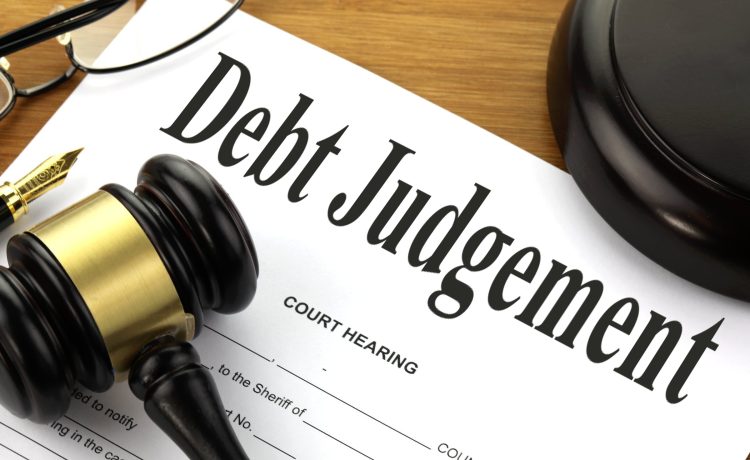Winning a lawsuit and receiving a judgment from the court is a huge step toward justice—but what happens when the debtor still refuses to pay? Unfortunately, just because a judge orders payment doesn’t mean the debtor will comply voluntarily. In fact, many judgment creditors are surprised by how hard it can be to collect what’s rightfully owed.
If you’re holding a court judgment and facing a non-paying debtor, you’re not alone—and you do have options. In this blog post, we’ll explain what steps you can take to enforce the judgment and how a judgment collection attorney can help you turn that judgment into actual money in your pocket.
Step 1: Understand the Nature of a Judgment
A judgment is a legal declaration that one party owes money to another. Once entered, it gives the creditor the legal right to collect using court-approved tools.
However, the court does not collect the money for you. That part is up to you—and this is where enforcement begins.
Step 2: Don’t Wait Too Long
Judgments come with statutes of limitations. Depending on your state, a judgment may only be enforceable for a limited number of years (typically 7 to 20). If you wait too long without renewing or enforcing the judgment, you could lose your legal right to collect.
Tip: Interest continues to accrue on unpaid judgments, often at a state-mandated rate. The longer it goes unpaid, the more it may be worth—but only if you act to enforce it in time.
Step 3: Send a Formal Demand for Payment
Before taking aggressive action, it’s standard practice to send a demand letter to the debtor:
- Include a copy of the judgment
- Specify the total amount due, including interest
- State a deadline for payment
- Notify them that you’ll pursue legal enforcement if they do not comply
Sometimes, the threat of garnishment or seizure is enough to motivate payment.
Step 4: Locate the Debtor’s Assets
If the debtor ignores your demand, you’ll need to locate their income and assets in order to collect. This can include:
- Employment information (for wage garnishment)
- Bank accounts (for levies)
- Real estate or vehicles (for liens)
- Business interests or receivables
You may not know this information right away. A judgment collection attorney can use tools like:
- Public records searches
- Skip tracing services
- Post-judgment discovery (subpoenas, depositions, and interrogatories)
Step 5: Enforce the Judgment Using Legal Tools
Once assets are identified, several enforcement options are available:
🔹 Wage Garnishment
Request a court order requiring the debtor’s employer to withhold a portion of their paycheck until the debt is paid.
🔹 Bank Levy
Freeze and seize funds directly from the debtor’s bank account, up to the judgment amount.
🔹 Property Lien
Place a lien on any real estate the debtor owns. If they sell or refinance, the lien must be paid first.
🔹 Asset Seizure
In some states, you can request the sheriff to seize and sell non-exempt personal property such as vehicles or business equipment.
Each tool comes with its own legal process, and the debtor may attempt to contest or delay. Having legal representation makes a big difference in enforcing judgments efficiently and correctly.
Step 6: Monitor and Renew
If the debtor is currently “judgment-proof” (lacking income or assets), you may not be able to collect right away—but your judgment is still valuable.
- Judgments often last for 10+ years and can be renewed.
- You can monitor the debtor’s finances over time.
- If they receive an inheritance, get a new job, or buy property, you’ll be in position to act.
A skilled attorney can keep the judgment active and enforce it when the time is right.
Step 7: Avoid These Common Mistakes
- Waiting too long to enforce or renew the judgment
- Failing to locate updated information on the debtor
- Attempting illegal collection tactics, which can lead to penalties
- Handling enforcement alone without knowledge of the law
These mistakes can cost you time, money, and your chance to collect. That’s why working with a judgment collection attorney is strongly recommended.
How a Judgment Collection Attorney Helps
An experienced attorney can:
- Identify enforceable assets and income
- File garnishments, liens, and levies quickly and correctly
- Handle court filings and respond to debtor objections
- Keep track of interest, deadlines, and renewals
- Work across state lines if the debtor moves
Best of all, they relieve you of the burden of navigating the process on your own while dramatically improving your chance of collecting.
Conclusion
Just because the court has ruled in your favor doesn’t mean your fight is over—but it does mean you have powerful legal tools on your side. When a debtor refuses to pay, don’t walk away frustrated. You have every right to enforce the judgment and recover what’s owed.
With the help of a skilled judgment collection attorney, you can turn a piece of paper into real payment—legally, efficiently, and with confidence. We recommend Judgement Collection Attorney.















